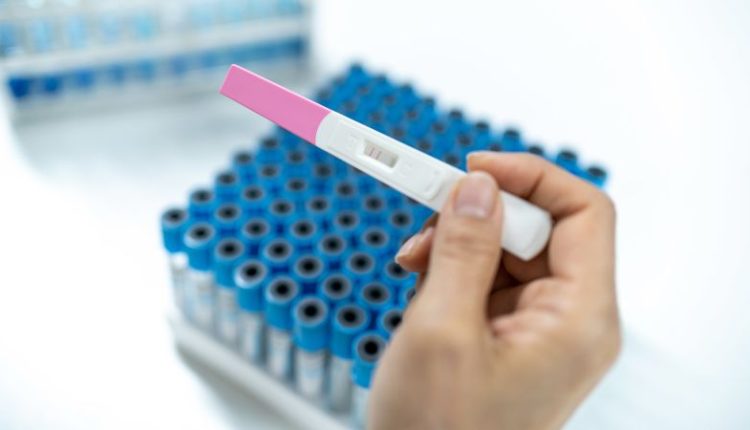Editor’s Note: Sign up for CNN’s Meanwhile in China newsletter which explores what you need to know about the country’s rise and how it impacts the world.
More than a dozen Chinese companies face legal action for allegedly asking job applicants to take pregnancy tests, state media has reported.
Prosecutors found that 168 women seeking positions at 16 companies in Nantong, a city in the eastern province of Jiangsu, had been tested illegally as part of their pre-employment physical check, the state-run Procuratorial Daily reported on Monday.
The case highlights a contradiction at the heart of the Chinese economy: While the country is trying to boost record-low birth rates, some companies are reluctant to hire pregnant workers.
Employers have reportedly avoided recruiting women of childbearing age — with reports of women being asked about family planning during job interviews, or being passed over for roles even if they don’t plan to have children.
Chinese law bans employers from administering pregnancy tests or discriminating against pregnant workers.
In Nantong, authorities were tipped off by an online public litigation group, which said some employers in the city had given pregnancy tests to job seekers. Working with the group, prosecutors launched an investigation and visited two major public hospitals and a medical exam center, according to the report.
At least one woman who was found to be expecting was not hired, the prosecutors said.
The report didn’t name any of the companies nor specify whether any of them had been fined. According to Chinese law, companies can be fined up to 50,000 yuan ($6,900) for gender discrimination.
China’s population has shrunk for two years in a row and its birth rate in 2023 was the lowest since the founding of the People’s Republic in 1949. In 2022, China was surpassed by India as the world’s most populous country.
The demographic crisis is a threat to the world’s second-largest economy — and has deepened in recent years despite authorities’ efforts to reverse the trend following decades of restrictive birth policies.
Alarmed by the falling birth rate in recent years, the government scrapped the “one child” policy that was in place for 35 years. In 2015, it allowed couples to have two children, and in 2021 raised this to three.
People in China don’t want to have children. Hear why
But the policy change has had minimal effect on the population drop.
China is one of the most expensive places in the world to raise a child in relative terms, with the disproportionate impact on women driving the country’s precipitously low fertility rate, according to a recent report from the YuWa Population Research Institute.
The average nationwide cost of raising a child from birth to age 17 was about $74,800 and rises to more than $94,500 to support a child through a bachelor’s degree, the report said. The cost of raising a child to age 18 in China is 6.3 times higher than the country’s GDP per capita.
Women taking maternity leave may face “unfair treatment” at work such as being transferred to other teams, taking a pay cut, or missing out on promotion opportunities, the report said.
Read the full article here

